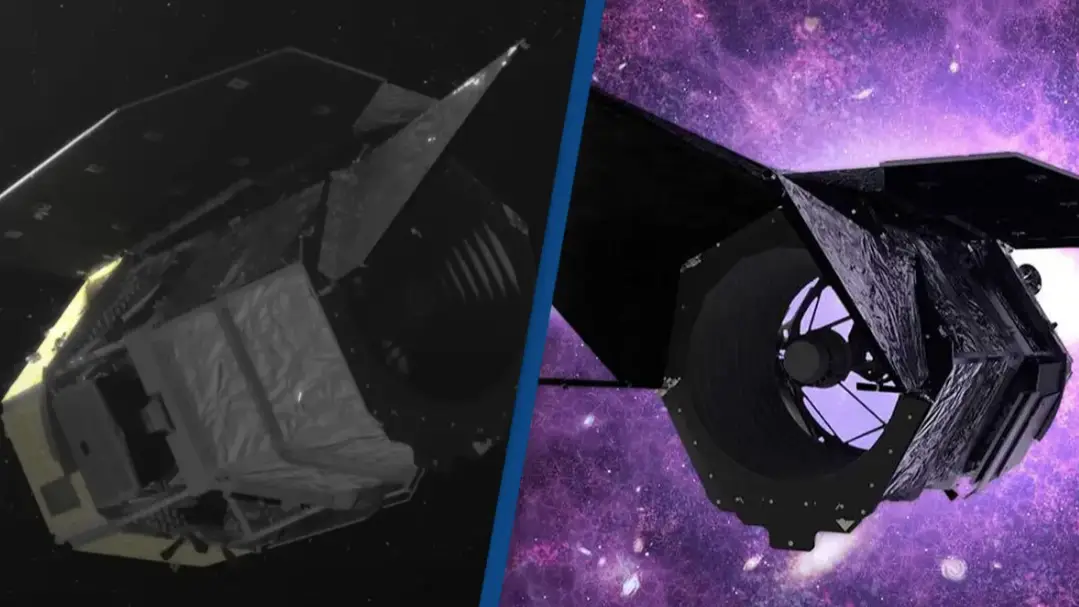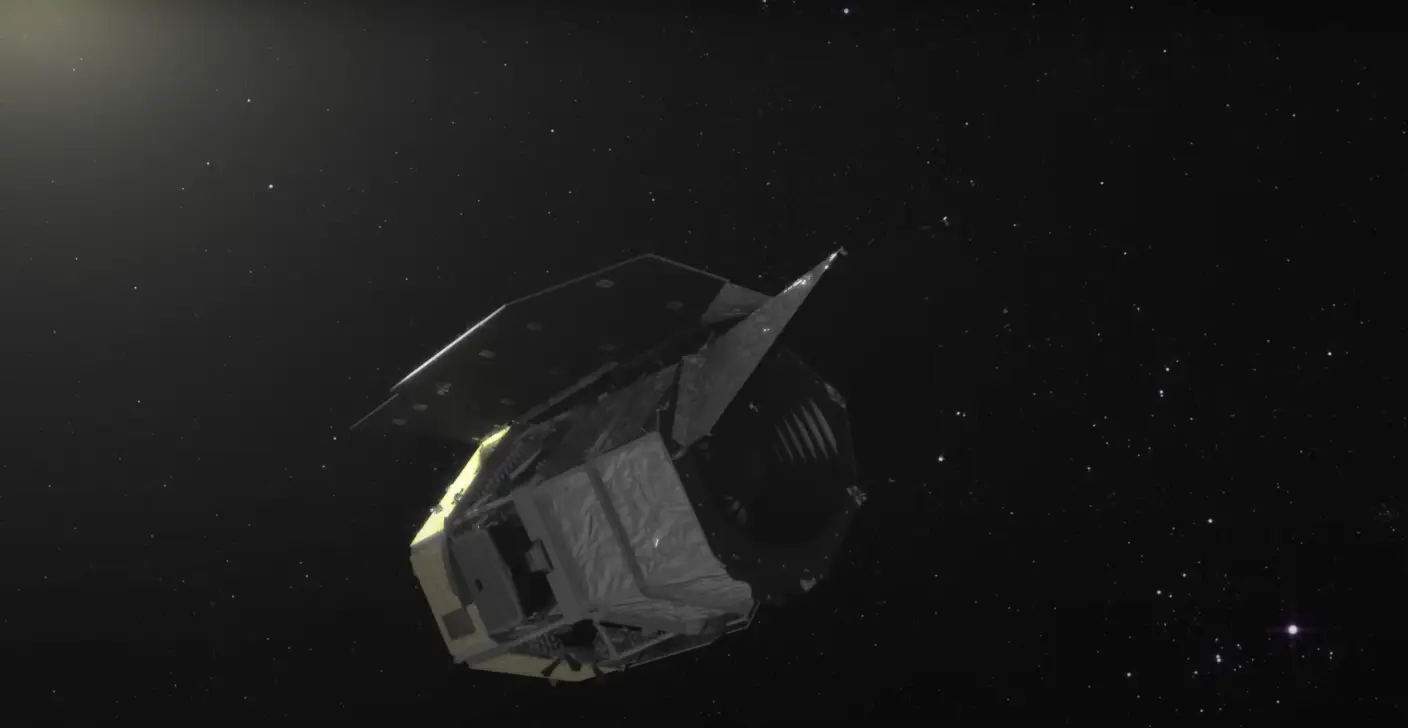
NASA is preparing to launch a new space telescope that could help scientists look for distant alien worlds.
The Nancy Grace Roman Space Telescope is a NASA observatory designed to settle key questions on exoplanets (a planet outside our own solar system).
It will have a panoramic field of view of the universe that is 100 times wider than the Hubble Space Telescope.
With a launch date slated for around May 2027, the space agency said the Nancy Grace Roman Space Telescope will give astronomers the chance to unravel science mysteries that are also linked to dark energy and astrophysics.
Advert
The telescope is also said to be a key stepping stone for future technology as earthlings continue the search for planets that could be hosting alien life, or might have had aliens in the past.
As part of the new mission, the Roman Coronagraph Instrument will be tested to search for planets similar to Earth.
Scientists at the moment spot planets orbiting far away suns by looking for dips in brightness as the planet passes between the star and the observer. However this method has its limitations.
The coronagraph will change this. It is roughly the size of a baby grand piano and consists of a complex system of detectors, prisms, self-flexing mirrors and masks.
This system designed to block light from stars to help scientists spot faint traces from planets orbiting them.
Rob Zellem, Roman Space Telescope deputy project scientist for communications at NASA Goddard, said: "In order to get from where we are to where we want to be, we need the Roman Coronagraph to demonstrate this technology.”
He continued: "We'll be applying those lessons learned to the next generation of NASA flagship missions that will be explicitly designed to look for Earth-like planets."

"The Roman Coronagraph is designed to detect planets 100 million times fainter than their stars, or 100 to 1,000 times better than existing space-based coronagraphs," the website for NASA's Jet Propulsion Laboratory explains.
Recently it was revealed that life on Mars may not be as feasible as we all think.
NASA has said in the past that the Red Planet is 'one of the only other places we know where life may have existed in the solar system'.
The space agency hopes to land humans on Mars by the 2030s.
Scientists used geophysical models of particle radiation for a solar cycle and models of how radiation could affect both human passengers and a spacecraft.
Following the study, which was published in the Advancing Earth and Science Journal, the researchers found that it would not be possible for humans to stay on Mars long-term.
